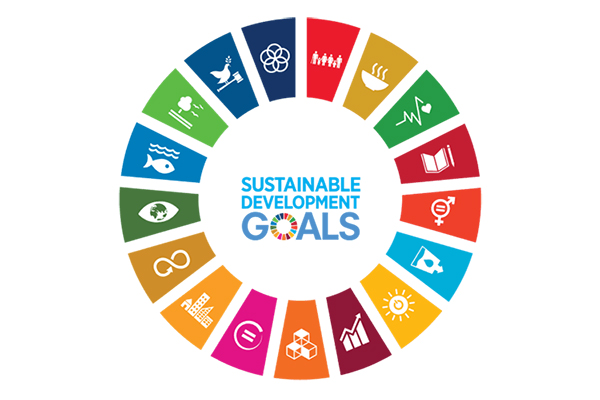
📄 The United Nations Office for South-South Cooperation (UNOSSC)
UNOSSC was established to promote, coordinate and support South-South and triangular cooperation globally and within the United Nations system. It aims to enhance South-South and triangular cooperation as means to accelerate the speed and scale of action towards the achievement of the Sustainable Development Goals. To contribute to this goal, the Office focus on 3 outcomes covering the following areas: (a) advance South-South and triangular cooperation policymaking and implementation; (b) strengthen United Nations capacity to provide South-South and triangular cooperation support; and (c) promote South-South and triangular cooperation knowledge exchange, capacity development, and technology development and transfer to enable developing countries to pursue more resilient and sustainable development.
📄 UNDP’s South-South and Triangular Cooperation
South-South and Triangular Cooperation (SSTC) plays an indispensable role in today’s development landscape. It represents a shared vision among the peoples and countries of the South that is shaped by close historical realities, similar development pathways, as well as shared challenges. UNDP considers SSTC as a fundamental approach to development cooperation and is viewed as an effective interlocutor, leveraging its network of offices, policy centers and expertise at global, regional and country levels to foster SSTC. SSTC is in UNDP’s DNA, as the Organization has a long history as a trusted knowledge broker, partnership facilitator, and a capacity development facilitator of SSTC.
📄 FAO’s South-South and Triangular Cooperation
Countries in the South have long been collaborating for development. FAO’s universal commitment to the Sustainable Development Goals (SDGs) remind us that new partnerships and the adoption of a modern approach is required if we are to deliver. Recent developments in South-South Cooperation show we have lots to learn from countries like Brazil, China, Morocco and Nigeria – which are among FAO’s most outstanding South-South partners in food and agriculture. Triangular partners such as Spain and Japan are also playing a role, providing complementary advantages and expertise to build more and more solutions.
📄 South-South Cooperation for Children (UNICEF)
South-South Cooperation can accelerate the progress of developing countries towards achieving the Sustainable Development Goals for children, reduce inequities, and safeguard the rights of vulnerable children.
📄 South-South Cooperation as a Mode of Engagement: Innovative Programme Solutions (UNFPA)
As UNFPA considers South-South and Triangular Cooperation (SSTC) as one of its strategic accelerators for results under the Strategic Plan 2022-2025, it is pleased to present this second set of 18 documented good practices on SSTC programming. This is evidence of successes that UNFPA offices had achieved in leveraging South-South partnerships for sexual and reproductive health and rights, gender equality, youth empowerment, and population and development.
This report is an attempt to review the role of South-South cooperation in the implementation of the Istanbul Programme of Action (IPoA), and to take stock of best practices and identify constraints in scaling up South-South cooperation with a view to renewing partnerships and enhancing cooperation with their Southern partners in the follow-up agreement, the Doha Programme of Action for the Least Developed Countries 2022-2031 (DPoA). The report focuses on the eight priority areas of action, identifying good practices and shedding light on emerging areas where South-South cooperation has a catalytic role to play. Concrete and actionable recommendations are made, with the aim of helping LDCs to leverage and scale up South-South cooperation in the new Programme of Action to advance progress towards the SDGs and achieve sustainable and transformative recovery from the pandemic.
📄 South-South and triangular cooperation in action (UNESCO)
This publication demonstrates how UNESCO is promoting South-South and triangular cooperation to advance inclusive, quality education and lifelong learning; to bolster science, technology and innovation; to promote culture and communication for sustainable development; to build resilience in the face of climate change, conflicts and disasters; and to support youth development and engagement.
📄 South-South Cooperation on Sustainable Tourism Development in Mexican World Heritage Cities (UNESCO)
A knowledge product of a pilot initiative between the UNESCO Office in Mexico and the United Nations Office for South-South Cooperation (UNOSSC), through its South-South Cities Project.
📄 Sharing Innovative Experiences: Successful Social Protection Floor Experiences (ILO)
The present publication was produced in partnership between the Special Unit for South-South Cooperation in the United Nations Development Programme (UNDP) and the International Labour Organization (ILO). This volume highlights 18 case studies on social protection policies from 15 countries of the global South. It is the first to bring together examples of good social protection floor practices for South-South learning.
As a growing form of partnership, South-South and triangular cooperation (SSTC) is playing an increasingly important role in the ILO’s public-private partnerships. Southern partners, with similar experience in development, bring particularly relevant and helpful experience in assisting the development of the Global South. In 2005, the Government of Brazil and the ILO initiated systematic horizontal cooperation in the field of combating child labour within Portuguese-speaking countries in Africa. Since then the ILO has more formally strengthened its role as a bridge between development partners of the South. Until mid-2015, several SSTC projects were concluded among the public private partnerships in place.
Within the context of the Belt and Road Initiative (BRI) and the economic interactions it entails, this project aims to build capacity in partner countries in the key policy areas of investment, trade, finance/debt, and technology, by indirectly learning from China’s development experience and by directly drawing from China’s existing institutional capabilities.

